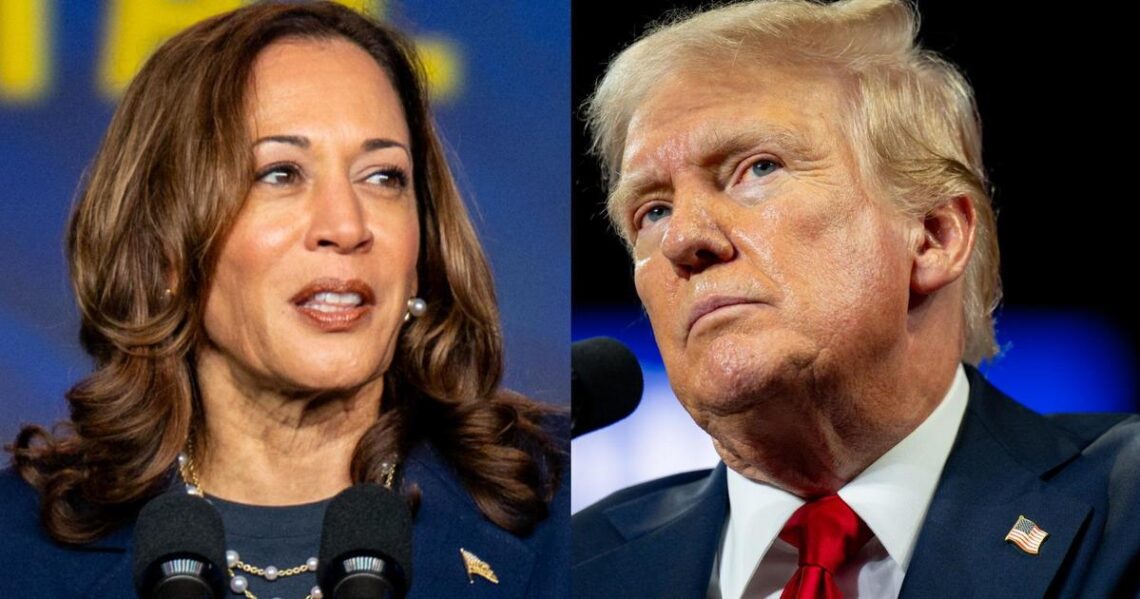It is often said that foreign policy does not decide American elections. Apparently the economy is supposed to be the deciding factor: inflation, healthcare, jobs. Immigration is a high concern as well, the amalgamated polls show. Foreign policy barely counts.
However, all truisms end up evaporating. The position of the candidates on Israel-Gaza and Ukraine-Russia is now an unavoidable reference. Both of them control their utterings. With the assassination attempt of Ryan Routh against Donald Trump’s life has actually brought the Ukraine question to the front.
The Israel-Gaza question does interest the press and the analysts: Kamala Harris has been less committed to the pro-Israel line than Joe Biden. On Ukraine and Russia, Donald Trump and Kamala Harris are clear enough, although the general public is not very passionate about this: helping Ukraine is good, but annoyingly expensive; Putin’s Russia can no longer be a friend, he is becoming a sort of Saddam Hussein for all involved, but the Europeans should handle this problem. The bottom line: The conservatives and nationalists stopped seeing the Russian strongman as an inspiration any more. Luckily for the Democratic Party, the leftists of the party have never been fascinated by Putin, and it is enough for them to imagine Republicans liking the man for them to shun him out of spite, with Alexandria Ocasio-Cortez in the lead.
But here there is a catch: Donald Trump is distancing himself from the pure pro-Israel stance. He may be sensitive to Gulf Arab whispering. Because those Arabs, politically so different from Palestinians, are dismayed at the Israeli bombing in Gaza with all the civilian misery and suffering. They certainly understand why the Israeli State is at war and what Hamas’s cruel plan is. They were fully horrified by the October 7th Hamas massacre of Israelis, but they cannot bear the onus of allowing Arab and Muslim brethren being smashed by Israeli air strikes. They are touched sentimentally, and their tame public opinion is putting some pressure on them. Here we see Donald Trump being influenced by the two sides at once: his friends in Israel, and in the Gulf, which means that his Abraham Accords alliance is breaking down.
In the end, he had the same problem as Kamala Harris.There is no easy solution, barely any middle ground. American public opinion in universities and big cities is moving away from the solid pro-Israel stance that prevailed since 1949 and especially 1967. The elites, conservative and liberal both, shared this conviction. The enemies of Zionism were: leftists, Black Power advocates, some lone intellectuals and of course the undercurrent of neo-Nazi and Ku Klux Klan types — but nothing more. The American Catholic Church was never fully at peace with the State of Israel, mainly because of claims to primacy over Jerusalem’s various sites, but it withheld from any denunciations and it still does. From an electoral point of view, these exceptions did not matter.
Now the liberals, the dominant force of the Democratic Party apparatus, are being outflanked on their left by some of the old forces, by the workers, and by the addition of the Arab and Muslim component. Even everyday liberals, successful professionals, who still support Israel, voice disapproval for the war methods of Netanyahu.
On the Republican side, even conservatives and pure Trumpites are experiencing doubt, though on a smaller level. They repeat the mantra of support for the State of Israel, while the sight of the suffering civilians of Gaza has reached them too. They discount the horrible suffering it as a self-induced by-product of Hamas’s folly. If one digs deeper into the Republican camp, the evangelical cultural phenomenon is very important, and it commands unconditional support for Israel based on Biblical religious writings and prophecies. This is not to be underestimated. The rejection of radical violent Islam is also very strong in this sphere, and there is little distinction between the various movements and varieties of Islamism and even Islam in general. Without the evangelicals Israel’s cause may have been lost.
Finally, there is a feeling much in tune with Donald Trump: the Israeli government’s bombing of Hamas targets “is not good public relations”, as the candidate himself has said. As the new Trumpite business elite is in tune with fossile fuels and real estate investment, the voice of the Gulf Arab elites is listened too. To save the Abraham Accords, the Trumpite political elite remains adamantly bellicose toward the Islamic Republic of Iran. This particular elite is dead-set against Iranian doings in Iraq, Syria, Lebanon and especially Yemen. In fact Houthi Yemen is the one place the US Armed Forces dare bomb directly. Again, from an electoral viewpoint, war must be waged on evil Islam so it is the Iranian constellation which is the preferable target, not Gaza.
Thus foreign policy is and will be a major factor for both candidates. The voters will say it is the economy that makes them vote, or “saving America”, but enough voters will abstain if they do not like their natural candidate’s position on the Israel-Gaza question. In several Swing States, especially Michigan, the Arab and Muslim vote could just cost those few votes that Kamala Harris needed to win. Therefore, foreign policy is the one fluctuating domain that could change everything even though it is barely visible in opinion polls. Both candidates are keenly aware of this and will continue making grand statements on the situation. The Middle East will have to wait for the election to know where things are going: the winner will have no more electoral worries and can then show his or her true colours.
All publishing rights and copyrights reserved to MENA Research Center.
























